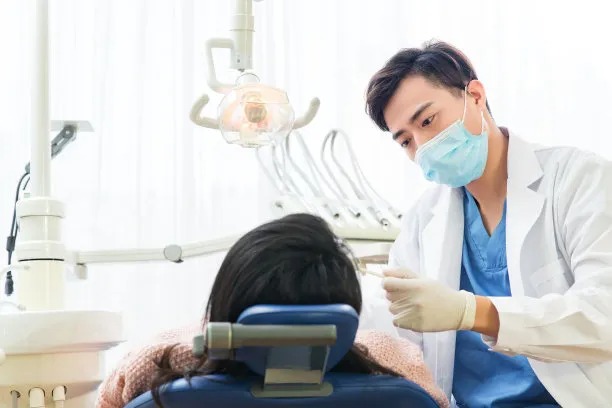The Importance of Proper Techniques and Care When You Need to Extract a Tooth for Oral Health
Summary: Tooth extraction is a necessary dental procedure that, when performed correctly, can significantly improve a person’s oral health. This article explores the importance of proper techniques and care when extracting a tooth, emphasizing the significance of pre-operative assessments, post-operative care, and the overall impact of professional assistance. By adhering to these practices, individuals can minimize complications and promote faster healing. Understanding these elements not only enhances the extraction experience but also contributes to long-term dental well-being. In a world where oral hygiene is critical, recognizing the importance of methodical approaches to tooth extraction is paramount for both dental professionals and patients alike.
1. Significance of Professional Assessment

Before embarking on a tooth extraction journey, a thorough professional assessment is paramount. Dentists must evaluate the overall oral health status of the patient. This includes examining the affected tooth, surrounding tissues, and any existing dental complications. The dentist’s expertise in diagnosing potential issues forms a crucial foundation for the extraction process.
Moreover, understanding the patient’s medical history is essential for a safe extraction. Conditions that may interfere with surgery, like blood disorders or allergies to anesthesia, need to be addressed beforehand. Ensuring the patients safety will facilitate a smoother procedure and recovery.
Finally, appropriate imaging techniques, such as X-rays, are essential prior to extraction. These images help in determining the tooths root structure and evaluating the presence of adjacent infections, making it possible to create a tailored extraction plan.
2. Proper Techniques for Extraction
The technique used in tooth extraction is critical to ensure the procedure is as smooth as possible. Dentists are trained in both simple and complex extraction methods. For a straightforward extraction, a dentist uses specialized instruments to loosen the tooth before removal. The right technique minimizes trauma to the surrounding tissues, reducing post-operative pain.
In the case of a surgical extraction, where the tooth may be impacted or intricately positioned, more advanced skills are required. This involves detaching gum tissue and possibly removing bone. Adequate training in surgical techniques aids in a successful outcome while limiting potential complications such as fractures or excessive bleeding.
Furthermore, the appropriate use of anesthesia enhances the extraction experience. Administering local anesthesia with precision can alleviate pain and anxiety. The skillful application leads to better patient satisfaction and a quicker post-operative recovery.
3. Importance of Post-Operative Care
Once the extraction is complete, the focus transitions to effective post-operative care, which is crucial for healing. Following the dentist’s guidelines regarding pain management, diet, and activity levels helps mitigate discomfort and prevent complications, such as dry socket.
Rest and proper oral hygiene play significant roles in the healing process. Patients are generally advised to avoid vigorous rinsing or sucking actions that could dislodge the blood clot, which is essential for healing. Gentle cleaning around the extraction site aids in preventing infections.
Nutritional aspects cannot be overlooked either. Soft foods rich in vitamins and minerals support the body’s healing process. Staying hydrated and avoiding alcohol or smoking is equally important to expedite recovery and reduce risks of post-operative complications.
4. Long-term Oral Health Impact
Proper techniques and care during tooth extraction significantly impact long-term oral health. An appropriately managed extraction can alleviate tooth-related pain and prevent further complications, allowing patients to reinvest in their dental well-being.
Moreover, maintaining the integrity of surrounding teeth during extraction is vital. A well-executed removal process preserves the jawbone’s health and minimizes the risk of shifting teeth, which can lead to misalignment over time.
Lastly, emphasizing prevention education during the extraction process encourages better oral hygiene practices. Dentists can offer insights on how to maintain oral health post-extraction, steering patients away from potential future complications, and fostering a proactive approach to dental care.
Summary:
In summary, the process of tooth extraction entails meticulous planning and execution. A professional assessment, proper techniques, diligent post-operative care, and the acknowledgment of long-term oral health implications are pivotal in ensuring successful outcomes. Increased awareness and adherence to these practices can significantly enhance the overall dental experience while reducing potential risks.
This article is compiled by Vickong Dental and the content is for reference only.



